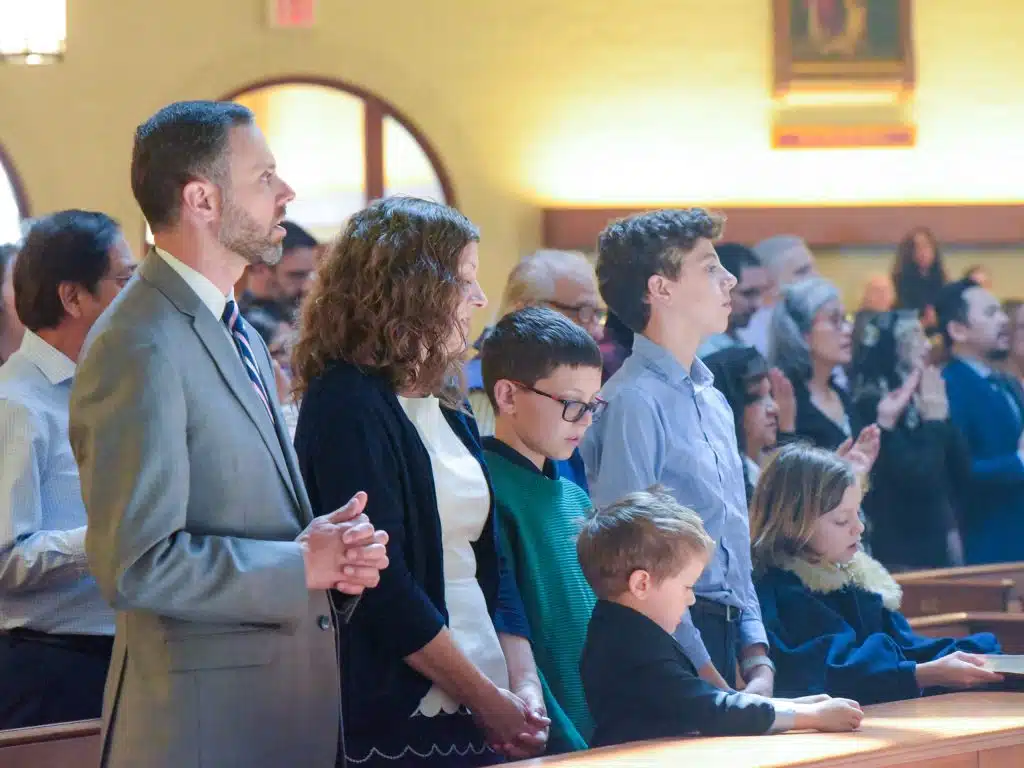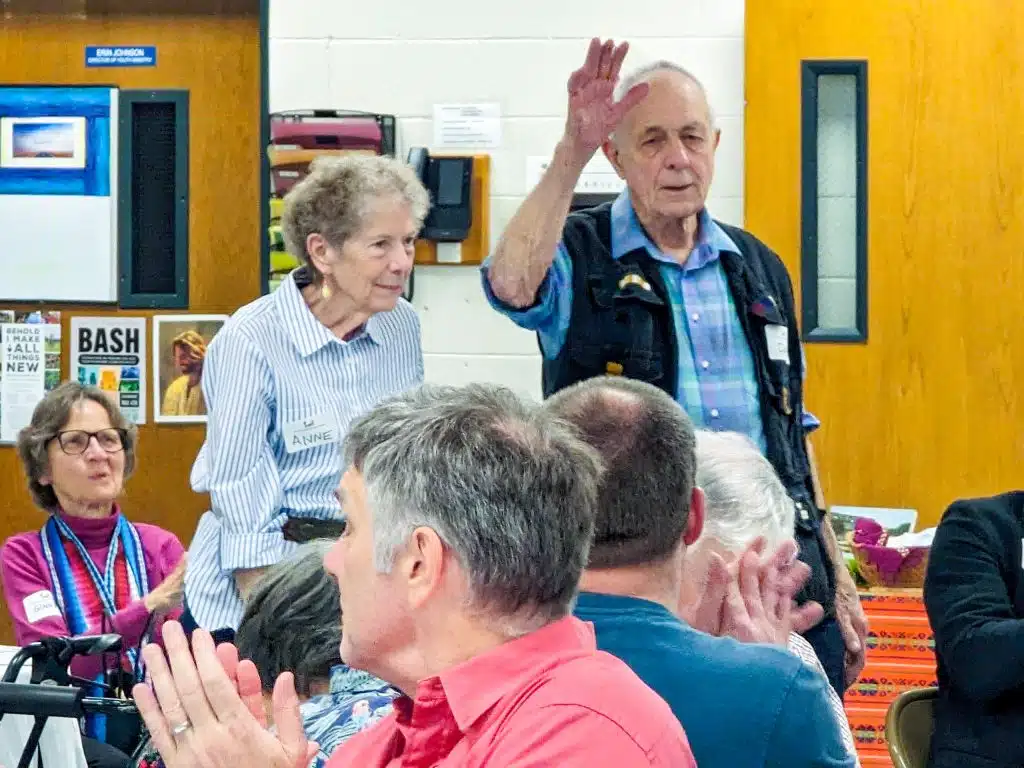What began as a way to engage Marymount University biology students in a fun community project has grown into a thriving organization that works to alleviate local food insecurity and promote sustainable living through urban agriculture.
Food for Thought was founded by Brenna Cook (Class of 2018) and Susan Agolini, Clare Boothe Luce assistant professor of biology and physical sciences at Marymount. The student-run club started with members volunteering weekly at St. Andrew’s Episcopal Church’s garden, a mile from campus.
“We have had a great time working with the folks at St. Andrew’s and have learned a tremendous amount from these experienced gardeners,” said Agolini, who called the dynamic between the two age groups “amazing.”
Gardening was new for most students.
“Probably what I have loved the most about this project is the students’ level of enthusiasm,” Agolini said. “We have also had students from across many disciplines sign up to help. Some come just to fulfill a civic engagement and then tell me they want to come back.”
The club has drawn faculty and student volunteers from disciplines as diverse as nursing, politics and fashion design. Marymount alumni have participated and helped spread word beyond campus. To date, 118 volunteers have served the project.
Also, they have worked with Arlington Friends of Urban Agriculture by planting and distributing basil seedlings to commuters at local metro stations. In addition, Cook and Agolini presented a poster on Food For Thought at the Virginia Urban Agriculture Summit in October.
Over the winter, the nonprofit Rooftop Roots helped the club construct and plant three raised beds in a grassy area of campus that fronts North Glebe Road. Produce raised there goes to the Arlington Food Assistance Center. Food for Thought also started a chapter of the Food Recovery Network that provides prepared but unused food from Marymount’s Gerard Dining Hall to the Arlington Street Peoples Assistance Network (A-SPAN).
Elizabeth Swanson, a senior biology major from Manassas Park, was drawn to the group by her love for plants and interest in urban agriculture and environmental sustainability.
“The best thing about Food for Thought is how personal it is, in every sense of the word,” said Swanson, the club’s new president and first summer intern. “Not only does our club attempt to assist in the ever-increasing problem of food insecurity by personally growing the produce that we donate and being there for every step of the process, we have also formed a lot of personal connections in the greater Arlington community.”
During her internship, she’ll continue to care for the raised-bed gardens and help out at the St. Andrew’s garden as often as possible. She’s also hoping to recruit more student volunteers.
“We’re always looking to connect with volunteers outside of our campus as well, so anyone interested in our mission or learning about gardening is more than welcome to contact us,” she said.


